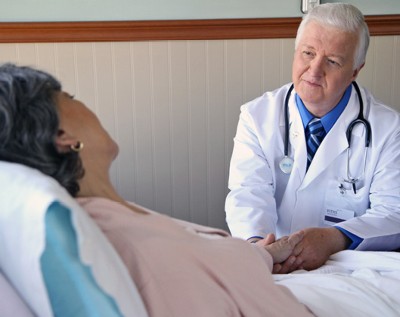How to Cope when Your Patient Dies

Living with Dying
“Some patients die. As a doctor, I have to live with this inevitable fact.”
Australian oncologist and author Dr. Ranjana Srivastava used these words to open a 2015 column on dealing with the death of a patient (The Guardian, March 20, 2015). Medical professionals working in a variety of specialties have different training and treatment protocols. But most have one thing in common—the death of a patient.
As common as it is, however, medical professionals don’t easily speak about the emotional toll. “’I lost a patient today’ attracted a unique brand of awkwardness among doctors,” writes Dr. Srivastava. Dealing with loss is not part of a physician’s training. Unlike patients’ loved ones, medical professionals often don’t have access to grief counseling; sometimes they don’t even have time to reflect on their feelings regarding the death. And, as these common misconceptions reveal, even the need to grieve is disparaged:
- As a professional, I am trained not to be affected.
- Grieving is unprofessional.
- Just move on, there are other patients to serve.
- My work is not personal.
- I can’t do my work if I let myself grieve.
“The consolations of fulfilling a doctor’s obligations were familiar, but so were the exquisite and fragile emotions that accompanied the loss of a patient. It was as if a bit of grief always lurked in the corridors, springing out to hijack the unsuspecting soul. Sometimes you swiped it away, other times it overpowered you.” — Dr. Ranjana Srivastava
Research over the past four decades has identified potential adverse consequences affecting the health and well-being of professionals who fail to cope with their feelings following a patient’s death. They include stress, problems with physical health, depression, burnout and “compassion fatigue.” A theme that emerges from the studies is one of balancing emotional boundaries—growing close enough to care about the patient but remaining distant enough to avoid the pain of loss. Few professionals surveyed felt they had been able to do this effectively.
How to Cope
Some recommended coping strategies are self-explanatory: exercise, eat right, learn how to set limits, set aside time for yourself. Others are a bit less usual. But all can help medical professionals and their teams remain healthy during emotionally stressful times.
- Seek the guidance of a trusted senior practitioner—Most have had this experience at some point in their career. They may be willing to offer their own insight and strategies for coping.
- Be introspective—Determine what lessons can be learned that will help you and your team grow. Be open to feedback.
- Support your team—Review the case with your team and allow everyone to have a voice in expressing what occurred.
- Be there for the family—No matter how you or your staff are feeling, they have lost a loved one.
- Seek the support of your family/friends—Mourn and seek comfort from family, friends, clergy, peers.
- Consider attending the funeral—This will be based on the closeness of the relationship with the patient and the family. Some professionals find closure from the process. Families appreciate your presence.
- Write a personal note to the family.
- Reach out to a colleague who has lost a patient—Opening lines of communication can benefit you and your colleague.
- Seek professional help—The death of a patient can lead to extreme stress. If a case troubles you deeply, consider discussing it with a counselor.
Medical professionals need to be responsible for their own care. An honest assessment of your ability to cope with loss, and of the toll it may already be taking, can help determine the right next steps for you.
“I knew that there was a point to grief, as a catalyst for improvement. Being a doctor is emotionally punishing, but connecting with our patients as fellow human beings is what renders it not merely a job, but an incomparable vocation.” — Dr. Ranjana Srivastava

Check Hospice Guidelines
Get diagnosis-specific guidelines in our hospice eligibility reference guide.
Hospice Guidelines by Diagnosis Refer Your Patient